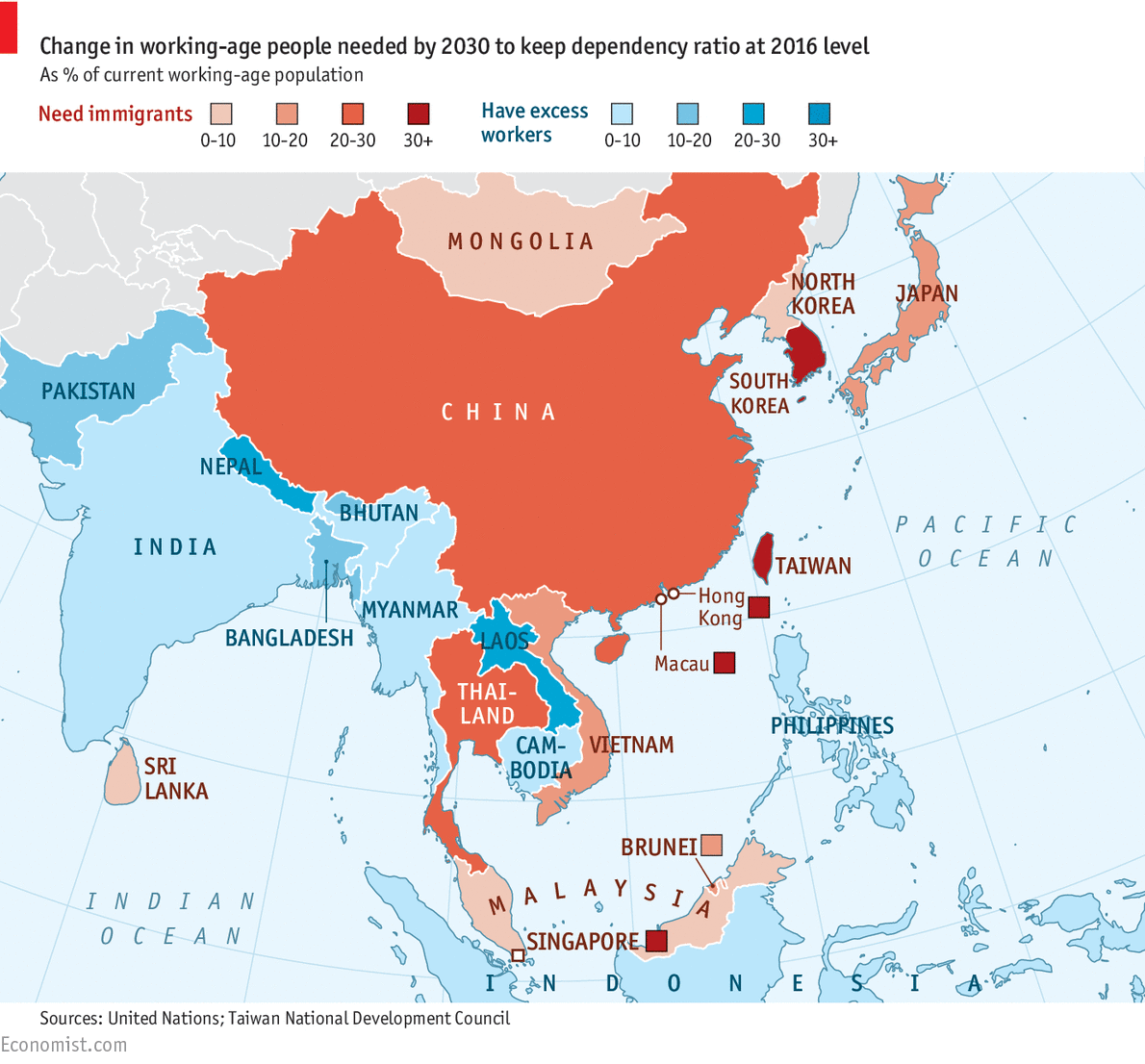 The Narendra Modi government’s last year in office will also be the most difficult one, and the biggest challenge will be to protect macroeconomic stability by not compromising on fiscal discipline The last few months before 2019 Lok Sabha elections could be dominated by economic pressure points, yet the Narendra Modi government is likely to leave behind an Indian economy that is in a far better shape than what it inherited in 2014. Illustration: Jayachandran/Mint The Narendra Modi government completed four years in office last week. Its last few months before the nation goes to the polls could be dominated by economic pressure points—rising inflation, a weak rupee, rural distress and a persistent banking crisis. Yet, it is likely to leave behind an economy that is in a far better shape than what it inherited in 2014.
The Narendra Modi government’s last year in office will also be the most difficult one, and the biggest challenge will be to protect macroeconomic stability by not compromising on fiscal discipline The last few months before 2019 Lok Sabha elections could be dominated by economic pressure points, yet the Narendra Modi government is likely to leave behind an Indian economy that is in a far better shape than what it inherited in 2014. Illustration: Jayachandran/Mint The Narendra Modi government completed four years in office last week. Its last few months before the nation goes to the polls could be dominated by economic pressure points—rising inflation, a weak rupee, rural distress and a persistent banking crisis. Yet, it is likely to leave behind an economy that is in a far better shape than what it inherited in 2014.30 May 2018
Narendra Modi govt’s last mile challenge
 The Narendra Modi government’s last year in office will also be the most difficult one, and the biggest challenge will be to protect macroeconomic stability by not compromising on fiscal discipline The last few months before 2019 Lok Sabha elections could be dominated by economic pressure points, yet the Narendra Modi government is likely to leave behind an Indian economy that is in a far better shape than what it inherited in 2014. Illustration: Jayachandran/Mint The Narendra Modi government completed four years in office last week. Its last few months before the nation goes to the polls could be dominated by economic pressure points—rising inflation, a weak rupee, rural distress and a persistent banking crisis. Yet, it is likely to leave behind an economy that is in a far better shape than what it inherited in 2014.
The Narendra Modi government’s last year in office will also be the most difficult one, and the biggest challenge will be to protect macroeconomic stability by not compromising on fiscal discipline The last few months before 2019 Lok Sabha elections could be dominated by economic pressure points, yet the Narendra Modi government is likely to leave behind an Indian economy that is in a far better shape than what it inherited in 2014. Illustration: Jayachandran/Mint The Narendra Modi government completed four years in office last week. Its last few months before the nation goes to the polls could be dominated by economic pressure points—rising inflation, a weak rupee, rural distress and a persistent banking crisis. Yet, it is likely to leave behind an economy that is in a far better shape than what it inherited in 2014.Capricious Afghanistan-Pakistan Trade: Who Wins?
By Shoaib A. Rahim
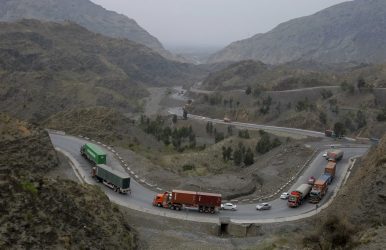 Economics literature insists that trade among nations is beneficial for job creation and fueling economic growth. Trade helps improve living standards and promote better quality products and services at competitive prices. Thus trade remains at the top of agendas when it comes to bilateral relations among countries. However, these benefits aside, trade relations between Afghanistan and Pakistan have suffered considerably under turbulent bilateral political ties. As a landlocked country, Afghanistan has remained dependent on Pakistan for its transit trade while both countries are also immediate markets for each other. Unfortunately, trade relations between Afghanistan and Pakistan have remained capricious, following the trajectory of turbulent political relations since the 1947 partition brought independent Pakistan into existence.
Economics literature insists that trade among nations is beneficial for job creation and fueling economic growth. Trade helps improve living standards and promote better quality products and services at competitive prices. Thus trade remains at the top of agendas when it comes to bilateral relations among countries. However, these benefits aside, trade relations between Afghanistan and Pakistan have suffered considerably under turbulent bilateral political ties. As a landlocked country, Afghanistan has remained dependent on Pakistan for its transit trade while both countries are also immediate markets for each other. Unfortunately, trade relations between Afghanistan and Pakistan have remained capricious, following the trajectory of turbulent political relations since the 1947 partition brought independent Pakistan into existence.Inequality in India can be seen from outer space
 Economists Praveen Chakravarty and Vivek Dehejia certainly believe so. They acquired images grabbed by satellites from the US Air Force Defence Meteorological Satellite Programme. These satellites circle the earth 14 times a day and record lights from the earth's surface at night with sensors. They superimposed a map depicting India's districts on their images, allowing them to develop a unique data set of luminosity values, by district and over time. Using data generated by the night lights, they studied of 387 of 640 districts in 12 states. These districts account for 85% of India's population and 80% of its GDP. Some 87% of parliamentary seats are in these districts. Using the novel methodology, the economists documented income divergence in India.
Economists Praveen Chakravarty and Vivek Dehejia certainly believe so. They acquired images grabbed by satellites from the US Air Force Defence Meteorological Satellite Programme. These satellites circle the earth 14 times a day and record lights from the earth's surface at night with sensors. They superimposed a map depicting India's districts on their images, allowing them to develop a unique data set of luminosity values, by district and over time. Using data generated by the night lights, they studied of 387 of 640 districts in 12 states. These districts account for 85% of India's population and 80% of its GDP. Some 87% of parliamentary seats are in these districts. Using the novel methodology, the economists documented income divergence in India.The Quad, Vietnam, and the Role of Democratic Values
By Tom Corben
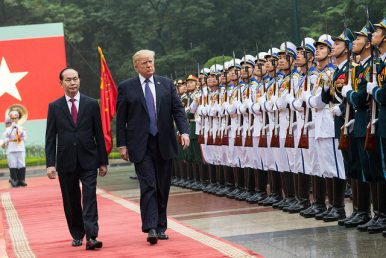 Since its revival of the sidelines of APEC last November, scholarship regarding the Quadrilateral Security Dialogue has addressed the various obstacles to the realization of its greater potential. Several contributions in the May issue of The Diplomat magazine underscored how the Quad’s incapacity to dispel perceptions of its “China containment” endgame have cast doubt in the minds of potential regional partners as to the merits of associating with the so-called “Democratic Security Diamond.” For example, one article noted that ASEAN’s agnostic outlook on the Quad is motivated in large part by the underdevelopment of the “Indo-Pacific” concept espoused by the dialogue’s members.
Since its revival of the sidelines of APEC last November, scholarship regarding the Quadrilateral Security Dialogue has addressed the various obstacles to the realization of its greater potential. Several contributions in the May issue of The Diplomat magazine underscored how the Quad’s incapacity to dispel perceptions of its “China containment” endgame have cast doubt in the minds of potential regional partners as to the merits of associating with the so-called “Democratic Security Diamond.” For example, one article noted that ASEAN’s agnostic outlook on the Quad is motivated in large part by the underdevelopment of the “Indo-Pacific” concept espoused by the dialogue’s members.China Will Need American Shale
Anthony Fensom
China’s shale gas production is picking up speed as it seeks to capitalise on the world’s highest estimated shale reserves. However, the communist-ruled nation is far from following in the footsteps of America’s shale boom, with analysts predicting China will miss its 2020 output targets by a wide margin. Nevertheless, China’s progress toward unlocking its shale gas reserves was highlighted by an April 17 report by the consultancy Wood Mackenzie. The report said China’s shale industry reached nearly 600 wells and nine billion cubic meters (bcm) of production in 2017, with output expected to nearly double to seventeen bcm by 2020. In addition, almost 700 new wells are expected to come onstream by the end of the decade from three new projects in the southwestern Sichuan Basin, with total capital investment of $5.5 billion.
Little Laos risks losing it all to China
By BERTIL LINTNER
 A new city is fast emerging on the China-Laos border, a manifestation of China’s Belt and Road Initiative (BRI) that if fully actualized will serve as Beijing’s new gateway to Southeast Asia. Once known for car smuggling and glitzy casinos catering to Chinese punters, the remote Lao town of Boten is gearing up for the arrival of the Beijing-backed Lao-China high-speed railway. Land-locked and mountainous Laos has long served as a geographical buffer between China and the rest of mainland Southeast Asia, a region where Beijing is now rapidly expanding its political and economic influence. If all the grand infrastructure plans that have been drawn up actually materialize, the US$6 billion railway will merge with Thailand’s existing rail network, which, in turn, will connect through Malaysia down to Singapore.
A new city is fast emerging on the China-Laos border, a manifestation of China’s Belt and Road Initiative (BRI) that if fully actualized will serve as Beijing’s new gateway to Southeast Asia. Once known for car smuggling and glitzy casinos catering to Chinese punters, the remote Lao town of Boten is gearing up for the arrival of the Beijing-backed Lao-China high-speed railway. Land-locked and mountainous Laos has long served as a geographical buffer between China and the rest of mainland Southeast Asia, a region where Beijing is now rapidly expanding its political and economic influence. If all the grand infrastructure plans that have been drawn up actually materialize, the US$6 billion railway will merge with Thailand’s existing rail network, which, in turn, will connect through Malaysia down to Singapore.TPP’s Regulatory Capitalism and China’s Belt and Road Challenges
By Richard B. Stewart
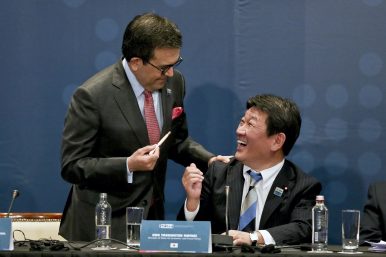 The Trans-Pacific Partnership (TPP) — now back from the dead — is more than a trade agreement. While its geopolitical significance and security undertones have been severely affected by the U.S. withdrawal, TPP’s project to establish U.S.-style regulatory capitalism as the dominant mode of international economic ordering in the Asia-Pacific lives on. TPP will operate a significant alternative to China’s state-centered approach, exemplified in the hugely ambitious Belt and Road Initiative (BRI).
The Trans-Pacific Partnership (TPP) — now back from the dead — is more than a trade agreement. While its geopolitical significance and security undertones have been severely affected by the U.S. withdrawal, TPP’s project to establish U.S.-style regulatory capitalism as the dominant mode of international economic ordering in the Asia-Pacific lives on. TPP will operate a significant alternative to China’s state-centered approach, exemplified in the hugely ambitious Belt and Road Initiative (BRI).What Does China Really Think of North Korea?
By Kerry Brown
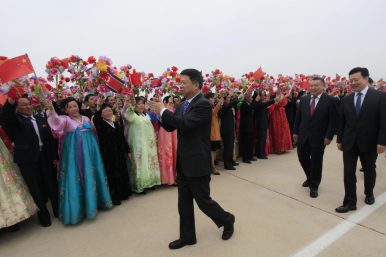 It is one of the most oft-repeated pieces of wisdom in modern diplomacy: The one power with true influence over the isolated North Korean regime is its neighbor, China. This is supported by a raft of seemingly irrefutable facts. China supplies the vast bulk of North Korea’s energy, accounts for almost all its foreign trade, and shares, in name at least, a similar political system (despite in practice being vastly different) and a deeply interlinked modern history. The two are so close that they are like “lips and teeth,” as the phrase — repeated during Kim Jong-un’s two visits to China earlier in 2018 — goes.
It is one of the most oft-repeated pieces of wisdom in modern diplomacy: The one power with true influence over the isolated North Korean regime is its neighbor, China. This is supported by a raft of seemingly irrefutable facts. China supplies the vast bulk of North Korea’s energy, accounts for almost all its foreign trade, and shares, in name at least, a similar political system (despite in practice being vastly different) and a deeply interlinked modern history. The two are so close that they are like “lips and teeth,” as the phrase — repeated during Kim Jong-un’s two visits to China earlier in 2018 — goes.Intelligence: China And The Shadow Wars
May 26, 2018: In April 2018 two Chinese born men (Shan Shi and Gang Liu) were indicted for conspiring to commit economic espionage in the United States. It was also revealed that the two men (one of them an American citizen and the other a permanent resident) and four others were also indicted in July 2017 for conspiring to steal trade secrets. The theft involved obtaining, from 2014 onward, information necessary to create and mass produce syntactic foam, a substance used to keep objects afloat in deep water. Syntactic foam is used in offshore oil exploration and production as well as for several military systems. The two accused spies were provided with technical and financial support by CBMF, a state-owned Chinese firm that had been established to develop new maritime technologies and put the technology into production. The Chinese spies were provided with several million dollars to establish a CBMF subsidiary in Texas where key technical people were hired away from an unnamed multinational firm that had developed syntactic foam production technology. Using bribes and other financial inducements the Chinese spies provided the necessary information for CBMF to build a factory in 2016 for the production of syntactic foam. The main customer for this syntactic foam was a Chinese shipyard building warships and other naval equipment. CBMF also began offering their syntactic foam to foreign customers.
Whether or not Beijing defies US sanctions, China’s roots in Iran are already deep
A strategic decision to stand by Iran could hit Chinese firms, analysts say, but the US move can only push the two countries closer together In the wake of the Trump administration’s decision to unilaterally withdraw from the Iran nuclear deal, global firms that have dipped their toes in the Iran market are left with few good choices. The UK, France and Germany struck a defiant tone after the decision, urging the US not to prevent other countries from maintaining the status quo under the 2015 agreement. “We urge the US to ensure that the structures of the JCPOA (deal) can remain intact and to avoid taking action which obstructs its full implementation by all other parties to the deal,” the statement provided by UK Prime Minister Theresa May’s office said.
US and China halt imposing import tariffs
China and the US say they will halt imposing punitive import tariffs, putting a possible trade war "on hold". The deal came after talks in the US aimed at persuading China to buy $200bn (£148bn) of US goods and services and thereby reduce the trade imbalance. US Treasury Secretary Steven Mnuchin did not give figures, but said the US would impose tariffs worth $150bn if China did not implement the agreement. Chinese Vice-Premier Liu He described the deal as a "win-win choice". He said dialogue was the way to resolve such issues and "treat them calmly" in the future. How did the prospect of a trade war come so close? The US has a $335bn annual trade deficit with Beijing. Before being elected, President Donald Trump had spoken of China "raping" the US, and promised to label it a currency manipulator on his first day in office.
So Much for North Korea Summit. Now What?
James Jay Carafano
 The saga of the U.S.-North Korea talks resembles a soap opera with nuclear weapons. But in following the unfolding relationship between The Donald and the Rocket Man, anyone who expected anything other than a roller coaster bought a ticket to the wrong ride. Today, the whole world will be on spin cycle, as commentators assess the implications of Trump’s letter canceling the talks. But, as was the case in 1986 when Reagan walked away from Reykjavik, so Trump’s letter will likely not be the last word in the bid to ease tensions on the Korean Peninsula.
The saga of the U.S.-North Korea talks resembles a soap opera with nuclear weapons. But in following the unfolding relationship between The Donald and the Rocket Man, anyone who expected anything other than a roller coaster bought a ticket to the wrong ride. Today, the whole world will be on spin cycle, as commentators assess the implications of Trump’s letter canceling the talks. But, as was the case in 1986 when Reagan walked away from Reykjavik, so Trump’s letter will likely not be the last word in the bid to ease tensions on the Korean Peninsula.Regime Change for Dummies
BY STEPHEN M. WALT
 In my last column, I argued that U.S. President Donald Trump’s rash decision to violate the Iran nuclear deal was the first step in a new round of regime change in the Middle East. If his goal was stopping an Iranian bomb and preventing a regional arms race, the existing agreement was working just fine, and he should have been trying to make it permanent instead of gutting it. If his goal was stopping Iran’s “regional activities,” the smart strategy would have been to keep the country from going nuclear while working with others to bring Iran to heel through pressure and additional diplomacy. Instead, Trump, National Security Advisor John Bolton, and Secretary of State Mike Pompeo are hoping that violating the Iran deal will let them re-impose sanctions on Iran. They hope this pressure will topple the Islamic Republic, or lead Iran’s own hard-liners to restart its nuclear enrichment program and provide a pretext for the preventive war that Bolton has long advocated.
In my last column, I argued that U.S. President Donald Trump’s rash decision to violate the Iran nuclear deal was the first step in a new round of regime change in the Middle East. If his goal was stopping an Iranian bomb and preventing a regional arms race, the existing agreement was working just fine, and he should have been trying to make it permanent instead of gutting it. If his goal was stopping Iran’s “regional activities,” the smart strategy would have been to keep the country from going nuclear while working with others to bring Iran to heel through pressure and additional diplomacy. Instead, Trump, National Security Advisor John Bolton, and Secretary of State Mike Pompeo are hoping that violating the Iran deal will let them re-impose sanctions on Iran. They hope this pressure will topple the Islamic Republic, or lead Iran’s own hard-liners to restart its nuclear enrichment program and provide a pretext for the preventive war that Bolton has long advocated.How North Korean hackers became the world’s greatest bank robbers
Patrick Winn
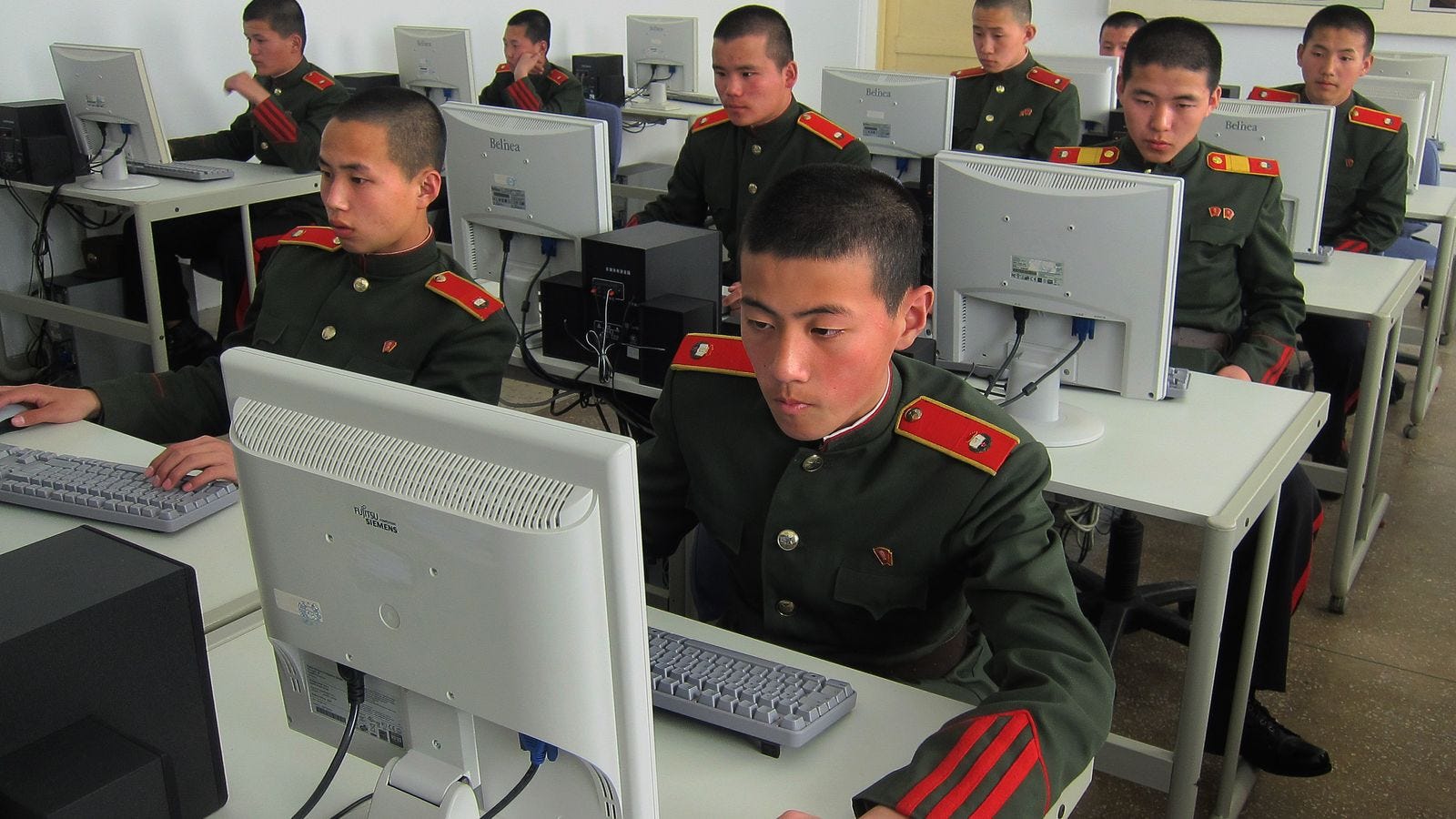 The Reconnaissance General Bureau, North Korea’s equivalent to the CIA, has trained up the world’s greatest bank-robbing crews. In just the past few years, RGB hackers have struck more than 100 banks and cryptocurrency exchanges around the world, pilfering more than $650 million. That we know of. Students at Mangyongdae Revolutionary School, a prestigious academy in Pyongyang. North Korea’s elite hackers are often deployed to countries with faster internet speeds to target banks around the world. In the US, they’ve gone after Wells Fargo, Citibank and the New York Federal Reserve. (Credit: KCNA)
The Reconnaissance General Bureau, North Korea’s equivalent to the CIA, has trained up the world’s greatest bank-robbing crews. In just the past few years, RGB hackers have struck more than 100 banks and cryptocurrency exchanges around the world, pilfering more than $650 million. That we know of. Students at Mangyongdae Revolutionary School, a prestigious academy in Pyongyang. North Korea’s elite hackers are often deployed to countries with faster internet speeds to target banks around the world. In the US, they’ve gone after Wells Fargo, Citibank and the New York Federal Reserve. (Credit: KCNA)Europeans want to break up with America. They’d do so at their peril
James Kirchick
Eulogies for the transatlantic relationship are irresponsible and premature, writes Jamie Kirchick. Though Trump has certainly made America more unreliable, the United States and its European allies still share the same fundamental values and interests. Europeans can start to unwind the transatlantic alliance, but they do so at their peril. This post originally appeared in the Washington Post. Donald Trump ascended to the presidency challenging the basic precepts of America’s relationship with Europe: NATO, he proclaimed, was not only “obsolete,” but Washington should make its security commitment contingent upon alliance members paying “their fair share.” The European Union was not an ally but a competitor that had been “formed, partially, to beat the United States on trade.” Against the express wishes of every European government—including, at the time, Britain’s—Trump cheered along Brexit and conveyed ambivalence as to whether the European Union should continue to exist. While he derided German Chancellor Angela Merkel on the 2016 campaign trail, he had nothing but nice things to say about Russian President Vladimir Putin, leader of the continent’s primary security threat. And as for the liberal values Europe and the United States share—respect for human rights, a free press, religious and ethnic pluralism—Trump was indifferent if not outright hostile.
The Top Secret Scandal Behind the Kremlin’s MH17 Massacre
By John R. Schindler
 I recently ignited a firestorm with my column about the 2010 Smolensk air crash, which killed 99 people and decapitated the Polish government. My recommendation for a new, third-party inquiry into that disaster, based on access to all available evidence, and free of politics, upset some people. I question the motivations of Westerners who dislike Poland’s current government more than Vladimir Putin and his nasty regime, particularly when they masquerade as anti-Kremlin activists. Moreover, the notion that Putin’s forces would blow up an airliner, without regard for innocent life, is anything but far-fetched. They’ve already done it. I am referring, of course, to the shootdown of Malaysian Airlines Flight 17 (MH17) over eastern Ukraine, an active warzone at the time, on July 17, 2014, killing all 299 passengers and crew aboard the doomed Boeing 777.
I recently ignited a firestorm with my column about the 2010 Smolensk air crash, which killed 99 people and decapitated the Polish government. My recommendation for a new, third-party inquiry into that disaster, based on access to all available evidence, and free of politics, upset some people. I question the motivations of Westerners who dislike Poland’s current government more than Vladimir Putin and his nasty regime, particularly when they masquerade as anti-Kremlin activists. Moreover, the notion that Putin’s forces would blow up an airliner, without regard for innocent life, is anything but far-fetched. They’ve already done it. I am referring, of course, to the shootdown of Malaysian Airlines Flight 17 (MH17) over eastern Ukraine, an active warzone at the time, on July 17, 2014, killing all 299 passengers and crew aboard the doomed Boeing 777.
 I recently ignited a firestorm with my column about the 2010 Smolensk air crash, which killed 99 people and decapitated the Polish government. My recommendation for a new, third-party inquiry into that disaster, based on access to all available evidence, and free of politics, upset some people. I question the motivations of Westerners who dislike Poland’s current government more than Vladimir Putin and his nasty regime, particularly when they masquerade as anti-Kremlin activists. Moreover, the notion that Putin’s forces would blow up an airliner, without regard for innocent life, is anything but far-fetched. They’ve already done it. I am referring, of course, to the shootdown of Malaysian Airlines Flight 17 (MH17) over eastern Ukraine, an active warzone at the time, on July 17, 2014, killing all 299 passengers and crew aboard the doomed Boeing 777.
I recently ignited a firestorm with my column about the 2010 Smolensk air crash, which killed 99 people and decapitated the Polish government. My recommendation for a new, third-party inquiry into that disaster, based on access to all available evidence, and free of politics, upset some people. I question the motivations of Westerners who dislike Poland’s current government more than Vladimir Putin and his nasty regime, particularly when they masquerade as anti-Kremlin activists. Moreover, the notion that Putin’s forces would blow up an airliner, without regard for innocent life, is anything but far-fetched. They’ve already done it. I am referring, of course, to the shootdown of Malaysian Airlines Flight 17 (MH17) over eastern Ukraine, an active warzone at the time, on July 17, 2014, killing all 299 passengers and crew aboard the doomed Boeing 777.Russia: Choosing A Side In Syria
May 25, 2018: The government has made it clear that it sides with Israel when it comes to Syria and a long-term peace deal. Israel has not attacked any Russian targets with its growing air offensive against Iranian forces. During May the Russian president met separately with the Israeli and Syrian leaders and apparently worked out terms of a peace deal that Israel and the Assads can live with. Turkey is willing to follow as long as Turkish border security measures (a security zone on the Syrian side of the border patrolled by Turk supported Syrian militias) are left alone. In the northeast the Syrian Kurds could have their autonomy as long as they kept the peace. Basically the Russian proposal is that “all foreign troops” leave Syria. That will include the Americans but not those that now have treaty rights (Russia has an airbase and part of a port). Israel insists that Iran have no treaty rights and get out completely, along with their local affiliate Hezbollah. The Americans have no interest in a permanent presence they just want to deal with some Islamic terrorists and then leave.
Putin on cyberwarfare: Action causes reaction, you don’t like reaction – let’s talk rules
Nations that don’t like being the targets of cyberwarfare have the incentive to work on common rules of cyberspace the same way rules for nuclear weapons were negotiated, said the Russian president. Vladimir Putin made the comparison in response to a journalist's question about the latest accusation in the US that Russia used its cyber capabilities to interfere with the 2016 election during a joint conference with French President Emmanuel Macron. “This is what I can say about cyberattacks or war of words in the press and other issues. Action always causes reaction. Always. If one does not want to get a reaction he does not like, rules for actions need to be set,” he said. “When the humanity invented nuclear weapons, everyone realized how dangerous it is and agreed on rules, which were aimed at preventing a tragedy. It’s obvious that cyber now is a most important field affecting millions of people. Let’s agree on how we work in it."
Diplomats, 'Net greybeards work to disarm USA, China and Russia’s cyber-weapons
By Simon Sharwood
Black Hat Asia The USA, China and Russia are doing all that they can to avoid development of a treaty that would make it hard for them to conduct cyber-war, but an effort led by the governments of The Netherlands, France and Singapore, together with Microsoft and The Internet Society, is using diplomacy to find another way to stop state-sponsored online warfare. The group making the diplomatic push is called the Global Commission on the Stability of Cyberspace (GCSC). One of the group’s motivations is that state-sponsored attacks nearly always have commercial and/or human consequences well beyond their intended targets. As explained today in a keynote at Black Hat Asia by GCSC commissioner and executive director of Packet Clearing House Bill Woodcock, those behind state-sponsored attacks are usually either hopelessly optimistic, or indifferent, to the notion that their exploits will be re-used. The results of that faulty thinking are history: the likes of Stuxnet, Flame, Petya and NotPetya did huge damage well beyond their intended targets, imposing massive costs on businesses.
EU considers baking new norms of cyber-war into security policies
By Simon Sharwood
The European Parliament has been asked to adopt a new set of “norms” about online conflict. The norms were developed by the Global Commission on the Stability for Cyberspace (GCSC), a group backed and funded by the governments of The Netherlands, France and Singapore, together with Microsoft and The Internet Society, that works to safeguard the Internet. One of the ways the GCSC thinks it can achieve its mission is by defining rules of cyber-war and having as many nations as possible sign up to them. As explained to The Register by GCSC commissioner Bill Woodcock, the group knows that rules alone can’t stop nations' offensive actions in cyberspace, but feels that if rules are in place and widely-endorsed, it’s easier for the international community to condemn governments that choose to ignore accepted practices.
12 Maps Covering 12,000 Years of History

Physical geography has challenged and shaped connectivity within and across Eurasia since its first civilizations emerged around 60,000 BCE. High snow-capped mountain ranges, vast deserts, and other obstacles influenced movement and settlement patterns. The steppe’s vast grasslands and the domestication of the horse facilitated a variety of mobile groups. Around 10,000 BCE, early irrigation methods expanded large tracts of arable land and helped sedentary civilizations flourish.
Overland
BAPTISM BY FIRE: A SURVEY OF FIRST COMBAT EXPERIENCES
Aaron Bazin
When soldiers have been baptized in the fire of a battlefield, they have all one rank in my eyes.
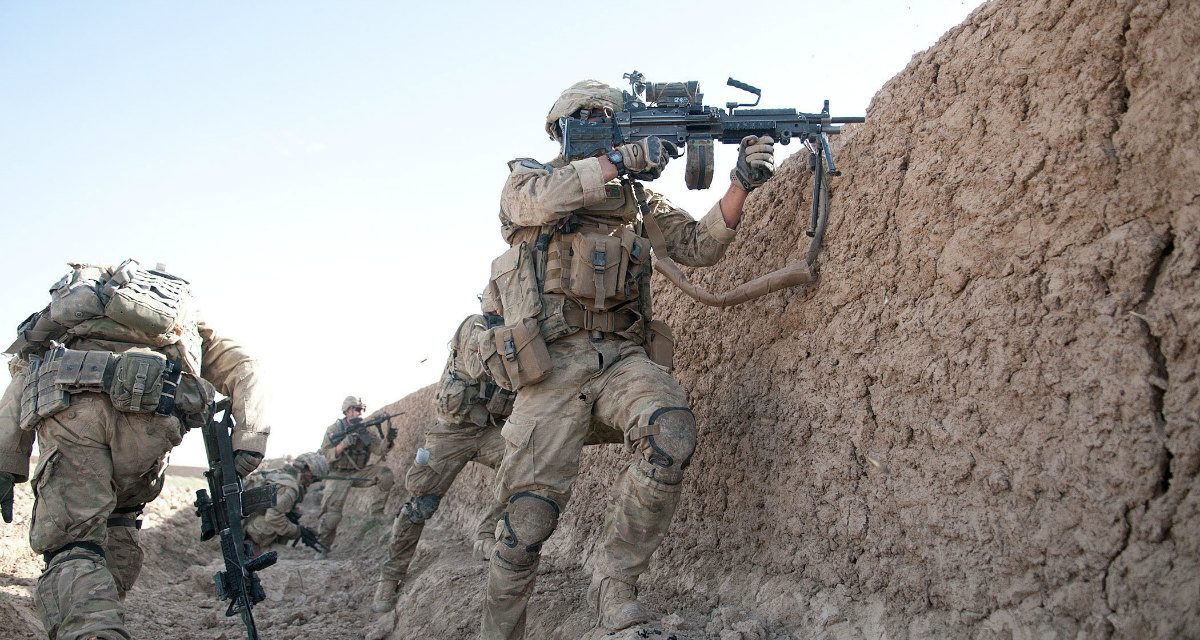 When a young man or woman enters military service, one existential question naturally arises in his or her mind: What will combat be like? For every service member, the answer will be different. Some professional soldiers may face a true combat situation a few times in a twenty-year career. Others may go from the recruiter’s office to combat in a matter of months and return many, many times. One commonality between these two extremes is that in each, a service member has a first experience; a moment that will likely change them forever. This article describes results of a survey that sought to capture veteran perceptions of first combat experiences to inform future generations as to what they might expect under similar circumstances.
When a young man or woman enters military service, one existential question naturally arises in his or her mind: What will combat be like? For every service member, the answer will be different. Some professional soldiers may face a true combat situation a few times in a twenty-year career. Others may go from the recruiter’s office to combat in a matter of months and return many, many times. One commonality between these two extremes is that in each, a service member has a first experience; a moment that will likely change them forever. This article describes results of a survey that sought to capture veteran perceptions of first combat experiences to inform future generations as to what they might expect under similar circumstances.The Inside Story of What a Solider Feels and Thinks in Combat
Paul Szoldra
 Sure, there are hundreds of books, movies, and other multimedia that can give a sense of what it’s like to be shot at, bombed, or rocketed. Then there are the stories a soldier or Marine may be told by a senior leader on “what it’s really like.” But there’s also some hard data, thanks to a recent study carried out by Aaron Bazin at West Point’s Modern War Institute. Bazin polled 304 military veterans, spanning from Vietnam to present day, on their experience in a “combat situation,” which he defined as “any event where the person’s life was put at risk in direct contact with an enemy force (e.g., shooting, bombing, indirect fire, etc.).” Not surprisingly, the most-reported physical response was an increase in heart rate. Also reported were rapid breathing, muscle tension, and tunnel vision. These changes in the body are well documented as part of the so-called “fight or flight response.”
Sure, there are hundreds of books, movies, and other multimedia that can give a sense of what it’s like to be shot at, bombed, or rocketed. Then there are the stories a soldier or Marine may be told by a senior leader on “what it’s really like.” But there’s also some hard data, thanks to a recent study carried out by Aaron Bazin at West Point’s Modern War Institute. Bazin polled 304 military veterans, spanning from Vietnam to present day, on their experience in a “combat situation,” which he defined as “any event where the person’s life was put at risk in direct contact with an enemy force (e.g., shooting, bombing, indirect fire, etc.).” Not surprisingly, the most-reported physical response was an increase in heart rate. Also reported were rapid breathing, muscle tension, and tunnel vision. These changes in the body are well documented as part of the so-called “fight or flight response.”Advances in Medicine During Wars: A Primer
Raymond E. Tobey
Besides the well-known technical advances that have occurred during major wars of the past 150 years, each one also has produced significant advances in medicine. Some of these advances were completely innovative because of circumstances that occur primarily during wartime—e.g., severe multiple wounds—and some have expanded recent new discoveries that had not yet become common in civilian practice. For example, the American Civil War brought about the significant use of anesthesia which had only been discovered in 1846. Despite the rather gruesome scenes of piles of bloody limbs often shown on television, the patients who underwent the procedures did it with complete insensibility of the previous ghastly pain of all surgeries. Prior to anesthesia, the key hallmark of surgical excellence was how quickly the procedure could be completed. The use of anesthesia enabled significant advances in surgical capabilities that continue to the modern day.
Subscribe to:
Comments (Atom)
